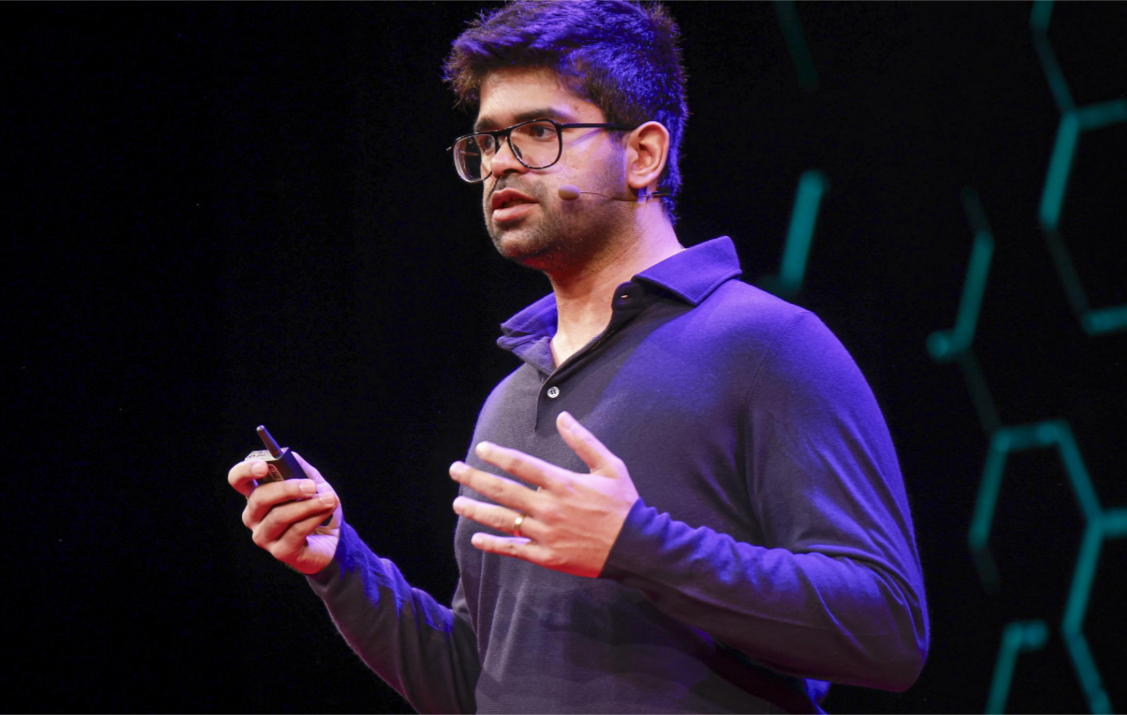(ThyBlackMan.com) As artificial intelligence (AI) continues to transform and reshape our traditional workplaces, Aravind Srinivas, CEO of the AI search platform, Perplexity, has a direct message for the younger generation of workers: It’s time to put down Instagram and start mastering AI tools. “Spend less time doomscrolling on Instagram; spend more time using the AIs,” Srinivas said. “That’s your way to add value to the new society.” Srinivas, who has become one of the most vocal advocates of AI literacy among young users, emphasized that individuals who are fluent in using AI will be significantly more employable and relevant in an AI-first economy, while those who are not risk being left behind. “The human race has never been extremely fast at adapting. This is testing the limits,” Srinivas noted, referring to the speed at which AI capabilities are evolving. “There are new breakthroughs every few months. Everyone will have to adapt fast.”

AI is overtaking most people in an increasingly automated world; it has already become a key factor in employability. According to SignalFire, a venture capital firm based in San Francisco, the hiring of new graduates at big tech companies such as Google, Amazon, Apple, Meta, Microsoft, Nvidia, and Tesla has declined by more than 50% since 2022. The report titled “State of Tech Talent: 2025” states that the reason for the collapse in entry-level hiring is related to the rise of AI. Therefore, Srinivas’ warning is clear. Adapt or fall behind. The battle is not simply a fight for workers’ futures, but a fight for the basic welfare and investment in human beings. Artificial intelligence has not only become another means of eliminating the human factor from the workplace to achieve greater corporate profits, but it will also make it harder for people to find means of survival.
When Srinivas refers to adding value to a new society, it highlights how new eras of technology drove societal changes in America’s past. We can never ignore how America has always been obsessed with exploiting labor for financial prosperity. This fixation on cheap labor results in paying unskilled workers next to nothing while paying highly skilled workers less than their true value. America thrived on cheap labor in the past and continues to do so throughout all eras of technology. Throughout our nation’s business-oriented society, low wages often result in a combination of reduced losses and higher profits, often at the expense of workers’ financial and safety interests. We are a nation built on the foundation of maintaining profits over people. The progression is clear. While our nation moved from one era of technology to another, the common denominator is the combination of increased profits and a lack of concern for the human factor.
In the past, cheap labor was most evident through the institution of slavery. When the Industrial Revolution transformed society in the 18th and 19th centuries, it marked an era in which the nation shifted from mainly agrarian and craft-based economies to mechanized production, mass urban labor, and industrial factories. The corporation became the dominant form of business. The Gilded Age was a period of rapid industrialization, economic growth, and immigration, but it was also marked by political corruption and wealth inequality. Driven by the desire for excessive profits, the era was rife with the inhumanity of child labor and sweatshops where employees endured long hours, low pay, and unsafe or unhealthy conditions. By way of these cruel working conditions, industrialists like Andrew Carnegie, J.P. Morgan, and John D. Rockefeller amassed great fortunes while immigrants lived in total poverty.
We know that the sins of the Industrial Revolution led to a rise in labor unions and the fight for workers’ rights, along with the abolition of child labor. As people were devalued as workers and as human beings, the fruits of the fight for human beings resulted in laws allowing collective bargaining, setting federal standards for wages, hours, and safe working conditions. Despite the gains, the combination of cheap labor and excessive profits still prevails. We see cheap labor achieved by way of illegal immigration, guest workers, and outsourcing, by sending American jobs overseas. Greed will always find a way. The technological era brought about by the internet (late 20th century) has transformed society into a more digital one, resulting in online marketplaces and global services. Job opportunities are now lost due to the decline in brick-and-mortar retail in favor of e-commerce.
The effort to eliminate the human factor and reduce costs in the workplace is driven by technology, including automation and AI. But with AI comes long-term consequences and a new fight against racial bias. “The greatest danger still lies ahead, with the refinement of artificial intelligence capabilities, such as facial and pattern recognition,” says Edward Snowden, former NSA contractor and whistleblower. Facial recognition systems misidentified people of color more often than white people, according to a federal study. Algorithms exhibited high error rates for “one-to-one” searches of individuals of Asian, African American, Native American, and Pacific Islander descent. Sen. Ron Wyden (D-Ore.) said the findings showed how “algorithms often carry all the biases and failures of human employees, but with even less judgment.” There is always a price paid when we fail to invest in competent people.
Written by David W. Marshall
Official website; https://davidwmarshallauthor.com/
One may purchase his book, which is titled;

















Leave a Reply